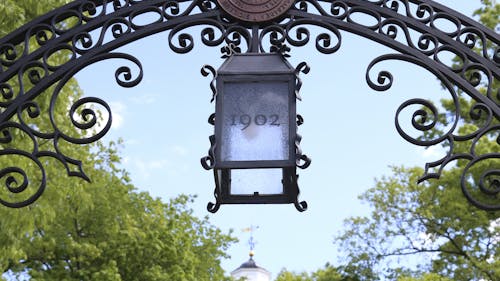New program at Rutgers generates influx of low-income applicants

Officially launched two years ago, the Coalition for Access, Affordability and Success has resulted in a 300 percent increase in applications to Rutgers, particularly from low-income students.
Rutgers University has found itself as a driving force behind the Coalition for Access, Affordability and Success, a college application service that seeks to make the college application process easier and more efficient for high school students, especially those from low-income school districts.
The Coalition program was first developed four years ago during a meeting of the Association of American Universities, which Rutgers is a member of, said Courtney McAnuff, vice president for enrollment management at Rutgers.
A number of institutions who previously used a similar program called the Common Application found that there were a lot of problems with the service, McAnuff said.
“There was also a new study out from Stanford that said low-income students weren’t getting into elite schools because they didn’t know how to apply or that they were eligible for scholarships and financial aid," McAnuff said. "So we thought, is there a better way for students to apply to top schools?”
The Coalition was officially launched two years ago with Rutgers as a founding member. It is maintained by a private firm called CollegeNet, and decisions regarding the Coalition are made by a board composed of representatives from member schools, including McAnuff.
Rutgers hosted the board’s annual meeting last year.
Annie Reznik, the executive director for the Coalition, said in an email that it currently has 130 member schools and is used by approximately 40,000 students.
McAnuff said Rutgers received around 800 applications through the program during its first year. This year, that number has increased to 3,500.
The Coalition is focused on recruiting students from diverse socioeconomic backgrounds, McAnuff said.
For New Jersey specifically, the Coalition seeks to ensure that all New Jersey students, especially those in urban centers, such as Newark, or those in rural areas like Warren County have access to the education their state has to offer.
McAnuff also described how the Coalition platform allows students to enter their grades beginning in their first year of high school, as well as upload any videos, documents or other work they would like college admission officers to see when they are applying.
The purpose of applicants tracking themselves through the Coalition was to give students in low-income or over-extended high schools the ability to know whether they are on track to be admitted to the college of their choice, McAnuff said.
“At schools like Princeton and Rutgers, the classes you take freshman year (of high school) can determine your admittance (to college)," McAnuff said. "And at high schools that don’t have great advising, students will take the easier classes, but they don’t know those decisions they make in ninth grade can affect the rest of their lives.”
Low-income students and military veterans will have their application fees waived, according to the Coalition website.
The Coalition members include public, private and Ivy League institutions to which students can apply through a single application. The Coalition uses data about student academic accomplishments to offer them customized lists of scholarships and financial aid opportunities, McAnuff said.
McAnuff also showed posters highlighting the diversity of Coalition members and the economic advantages it provides to students. These posters will be displayed in guidance offices and classrooms in high schools across the country.
The Coalition has not been without its critics. In an editorial to The New Yorker, journalist Matt Feeney described the Coalition as another component in a overly-complicated, stress-inducing college application process that forces students to conform to what universities decide is desirable instead of being themselves.
Feeney writes, “Through its new, considerate, easy-to-use technologies, the Coalition will give kids fuller means, over a four-year span starting in ninth grade, to mold their teen-age selves according to the implicit and explicit and imagined preferences of, well, the Coalition.”
Despite this, the economic benefits of the Coalition’s outreach to low-income students cannot be ignored.
For every 200 students admitted to Rutgers through the “Future Scholars Program,” which is linked to the Coalition's process of tracking high school progress, New Jersey saves around $30 million in student financial aid and public assistance programs, McAnuff said.
“Education keeps people off public assistance, such as food stamps or welfare. It is the great leveler,” McAnuff said. “The State University should offer everyone with desire and work ethic the opportunity to come here, not matter where they live.”



